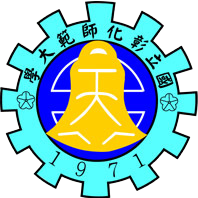SDG4.3.5 Lifelong learning access policy-2021
NCUE organizes various types of activities and courses, with no restrictions on race, religion, physical and mental disabilities, immigration status, or gender. To ensure that relatively disadvantaged students, including the financially disadvantaged, aboriginals, new immigrants, and students of different genders, have a fair chance to study peacefully, the school has established a number of relevant laws and policies to protect students’ learning rights.
1. Gender equality: In 2000, the National Changhua University of Education Regulations of Gender Equity Education were formulated. The National Changhua University of Education Gender Equality Education Committee Establishment Methods were established in 2004 to establish a gender-friendly education environment. We also actively provide assistance to improve the situation of students who are discriminated for their gender or gender orientation. We safeguard the right to education of pregnant students and provide the necessary assistance. In addition, we also plan to open elective courses related to gender equality. Faculty and students shall jointly establish a gender-equitable campus learning environment. (http://webadmin.ncue.edu.tw/er29/ploy/UploadFiles/2098/File/%E5%AF%A6%E6%96%BD%E8%A6%8F%E5%AE%9A.pdf)
Please refer to the attachment for NCUE’s gender equality education policy and specifications: Annex 4.3.5A- Regulations of Gender Equity Education
2. Indigenous students: In 2017, NCUE set up an Indigenous Student Resource Center. We provide aboriginal student life, schoolwork, cultural edification, development, and other service items to support the development of the diverse wisdom and talents of indigenous people. Every academic year, NCUE provides nearly a hundred additional places for aboriginal students to study. After enrollment, they can participate in a life-wide learning system and guidance to reduce their leave and drop-out rate and ensure equal opportunities for education. In addition, the Indigenous Peoples Resource Center provides aboriginal culture-related learning courses every year in addition to the services needed for the livelihood of aboriginal people. This also allows other students in the school to participate in the preservation and promotion of aboriginal culture (http://student.ncue.edu.tw/files/11-1017-2249.php?Lang=zh-tw).
3. Students who are financially or culturally disadvantaged: NCUE established the National Changhua University of Education Taking-off Students Award Project Main Points in 2018 (https://drive.google.com/file/d/1vboZgtAKQ-eLdFnO8B7WfltW0g3CaqWy/view), through which we help the disadvantaged students of NCUE in a way that their learning would not be affected by financial factors. We provide tuition and miscellaneous fee reductions, school fund subsidies, and related learning guidance for relatively disadvantaged groups to protect their rights to study. In addition to providing opportunities to study, we also plan to counsel students’ learning process in all aspects during their studies, to ensure that students can study and complete their studies with peace of mind. At the same time, we provide equal education opportunities to promote the vertical mobility of social classes. The results are as follows:
3.1 The number of financially disadvantaged students was 1,186 in the 107 academic year. In academic years 108 and 109, we enrolled 1,184 and 1,226 students, respectively. The average number is about 1,200 per academic year (including low-income households, low- to middle-income households, students with disabilities, and children of people with disabilities, children and grandchildren of families in special circumstances, those who are eligible for grants for underprivileged students in colleges and universities, aboriginal students, and those whose families have undergone sudden changes and passed the school’s review).
3.2 To help disadvantaged students come to school with peace of mind, the school actively raises funds and rolls out various support measures to improve the assistance system. The school has invested 28.5 million TWD since the 107 school year.
3.3 To ease students’ worry while studying, we use the guidance system of ‘study instead of work-study’. Students with financial disadvantages can take care of both schoolwork and their daily needs at the same time. From their enrollment to their graduation, we implement the ‘all-round care for students’ learning process’ and encourage students to achieve the goal of ‘progressing academically and taking-off to your dream’. The learning process includes worry-free schooling and life counselling, professional care and psychological counselling, self-directed study counselling, and accomplishment enhancement career counselling. Scholarships and bursaries have benefited more than 6,000 students. (https://sites.google.com/gm.ncue.edu.tw/ncueeagle)
4. New immigrant students (immigration status): New resident students may face difficulty enrolling as they settle in our country. Therefore, in January 2021, NCUE established the National Changhua University of Education New Resident Admissions Regulations. When applying for the admission examination in the same year, the admissions shall be handled independently, and the examination shall not be conducted with ordinary students. This allows new resident students to have fair competition and opportunities for admission. http://acadaff.ncue.edu.tw/ezfiles/21/1021/img/827/624446750.pdf
Please refer to the attachment for the application regulations for new residents: Annex 4.3.5B- Regulations of New Immigrants

